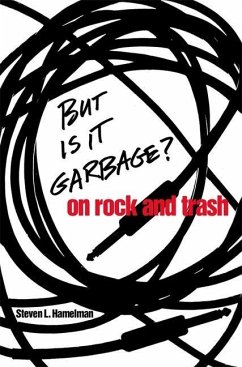Trash has been blowing across the rock 'n' roll landscape since the first amplified guitar riff tore through American mass culture. Throwaway tunes, wasted fans, crappy reviews, junk bins of remaindered albums: much of rock's quintessence is handily conveyed in terms of disposability and impermanence. Steven L. Hamelman sums up these rubbishy affinities as rock's "trash trope." Trash is an obvious physical presence on the rock scene--think of Woodstock's littered pastures or the many hotel rooms redecorated by the Who. More intriguingly, Hamelman says, trash is the catalyst for a powerful mode of rock composition and criticism. It is, for instance both the cause and effect when performers like the Ramones of Beck at once critique junk culture and revel in it. Hamelman guides us across five decades of rock to explore the trash trope in all of its audible, visual, and emblematic power. He offers up a personal top-forty list of songs that engage the trash trope at many levels, including "Yakety-Yak," the Coasters' lament about taking out the trash, and Radiohead's "No Surprises," in which the singer's persona likens his heart to a landfill. Drawing extensively on Lou Reed's "Berlin, Hamelman gives the "Is rock dead?" debate new meaning by pondering death themes in the music and the morbid romanticism of the best "wasted" recordings. Finally Hamelman looks at rock's "saving" powers--at how a medium steeped in tropes of uselessness and inconsequence can mean so much to countless people. "But Is It Garbage? spills over with challenging insights into how rock's creators, critics, and consumers transform, and are transformed by, trash as a fact and a concept. In the music's preoccupation withits own trashiness readers will perceive a wellspring of rock innovation and inspiration--one largely overlooked and little understood until now.
